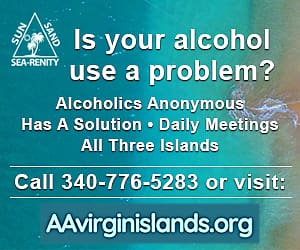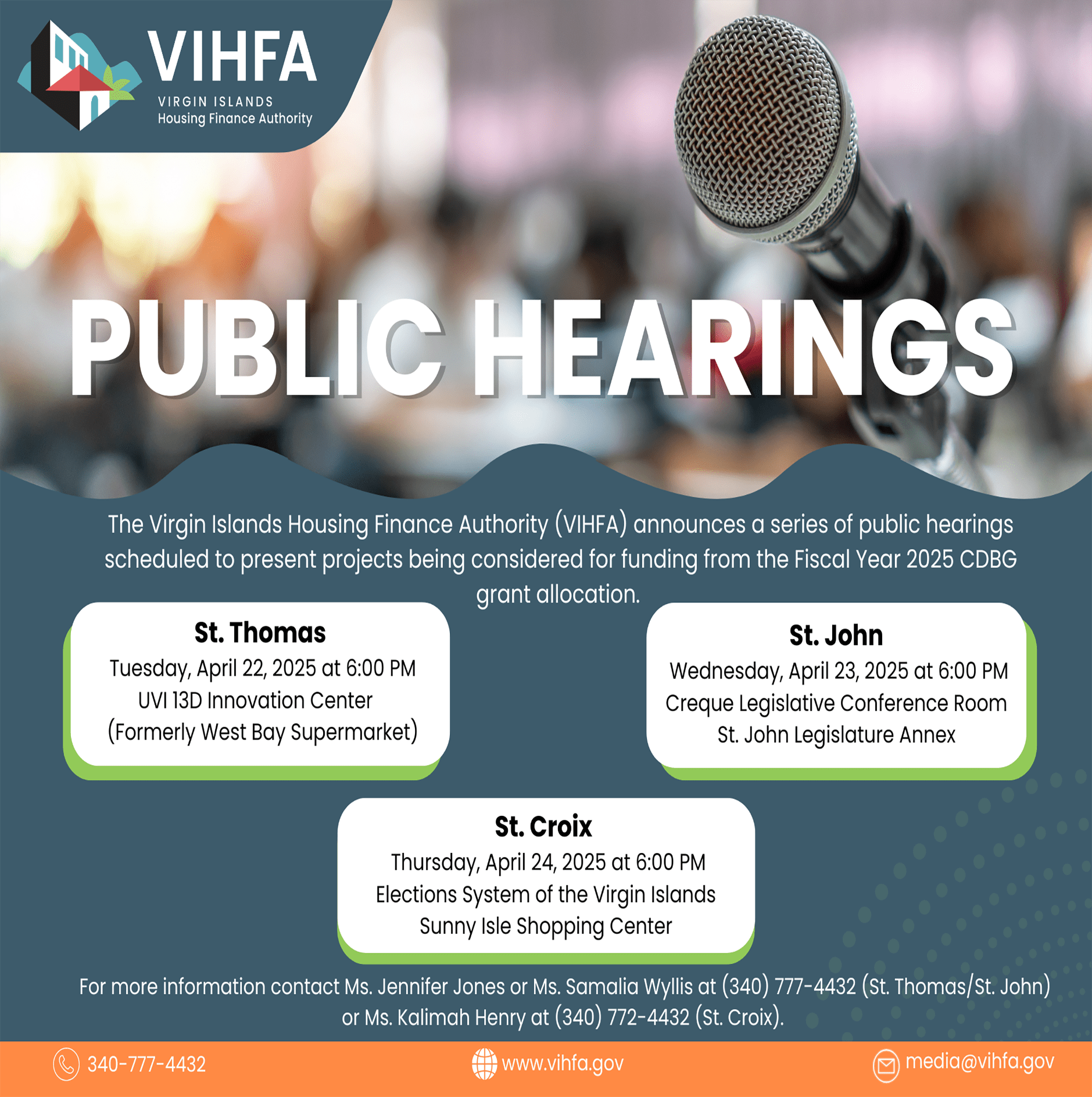As we gear up for the 2024 Senate elections, it’s crucial to know where each candidate stands on issues that matter most to our community. To keep you informed, The Source has compiled a list of key questions on pressing topics affecting the Virgin Islands. The answers below are from incumbent St. Thomas-St. John District Sen. Alma Francis Heyliger:
Why are you running for office, what are your qualifications, and why should voters choose you?
I am running for re-election because I believe in the potential of the U.S. Virgin Islands, and I am deeply committed to continuing the work that puts the needs of our people first. Over the past four years, I have been a tireless advocate, championing issues that affect our community the most — from economic development and education to fighting for fair representation and ensuring our voices are heard both locally and on the national stage.
As a sitting senator, I have proven my dedication to transparency, accountability, and action. I have led initiatives that protect individual rights, support small businesses, and strengthen our local economy, all while standing firm against discriminatory practices that threaten our civil liberties. My qualifications extend beyond just serving in office; they lie in my experience in fighting for legislation that directly impacts our families, our youth, and our future.
How would you address the high cost of living in the territory and the lack of affordable housing?
Addressing the high cost of living and the lack of affordable housing in the U.S. Virgin Islands requires a comprehensive approach. Here are several strategies I propose:
1. Expand Affordable Housing Programs:
- Increase Public Housing Units: Collaborate with the Virgin Islands Housing Authority (VIHA) to construct more low-income public housing units. This effort includes initiatives like the Donoe Redevelopment Project, which aims to provide 84 hurricane-resilient units in St. Thomas
- Enhance Rental Assistance: Strengthen programs such as the Housing Choice Voucher Program to offer greater support to low-income families, enabling them to afford private rentals
2. Promote Homeownership:
- V.I. Slice Program: Support and expand initiatives like the VI Slice Moderate-Income Homeownership Program, which assists residents in achieving homeownership, thereby fostering economic stability
3. Implement Rent Control Measures:
- Establish Rent Regulations: Introduce policies to stabilize rent prices, preventing excessive increases and ensuring affordability for tenants.
4. Address Cost of Living Factors:
- Reduce Import Duties: Advocate for lower import taxes on essential goods to decrease prices for consumers.
- Support Local Agriculture: Invest in local farming to reduce reliance on imported foods, which can be more expensive.
5. Increase Economic Opportunities:
- Job Creation: Stimulate economic growth by attracting businesses and industries that offer well-paying jobs, helping residents to better afford living expenses.
- Vocational Training: Provide training programs that equip residents with skills in demand, leading to higher employment rates and better wages.
By implementing strategies such as these, we can work towards alleviating the financial burdens faced by many residents and ensure a more sustainable and equitable future for the U.S. Virgin Islands.
How would you improve the territory’s electrical grid and implementation of renewable energy?
Improving the territory’s electrical grid and advancing renewable energy is essential to reducing our energy costs and achieving sustainability. One of the main ways I would address this is by modernizing our electrical infrastructure to be more resilient and better equipped to integrate renewable energy sources.
I have introduced a bill that explores the use of hydropower, which involves using water to generate energy. With our abundant natural resources, hydropower offers a renewable and reliable energy source that could significantly reduce our dependency on imported fossil fuels. By investing in this form of energy, we can lower electricity costs, reduce our carbon footprint, and create jobs in the renewable energy sector.
In addition to hydropower, I advocate for expanding solar and wind energy projects across the islands. We have plenty of sunlight, and if we continue to harness it efficiently through solar farms and rooftop panels, we can further diversify our energy portfolio. Wind energy also holds great potential, especially with the strong winds we experience throughout the year.
Another key area of improvement is updating and reinforcing our grid infrastructure to withstand extreme weather events, which frequently disrupt power. We need to invest in smart grid technology, which will allow for better management of energy distribution and quicker recovery after storms. This would also facilitate the integration of more renewable energy sources into the grid, ensuring a smoother transition to a clean energy future.
By combining efforts to modernize the grid, promote hydropower, and expand other renewable sources like solar and wind, we can build a more reliable, affordable, and sustainable energy system for the territory.
What would you do to expedite or improve the territory’s disaster recovery, which has dragged on for seven years now?
One of the critical steps I’ve already taken in addressing disaster recovery is diligently working to protect the $100 million line of credit that the Legislature created. This line of credit is essential because it serves as matching funds to kickstart many disaster recovery projects that have been delayed. These funds are crucial for unlocking federal recovery dollars and ensuring that we can move our recovery efforts forward.
However, as a senator, it’s important to note that many of the decision-making processes regarding disaster recovery fall under the executive branch. While the legislative branch does not have direct control over these decisions, as a member of the Legislature, I can encourage the executive branch to act more swiftly and share with them some of my solutions to streamline and expedite the recovery process. Additionally, I will utilize my oversight responsibilities to ensure that funds are being used appropriately and that the recovery projects are on track.
To further expedite recovery, I would advocate for greater efficiency in our coordination with federal agencies like FEMA and HUD. Often, the delays stem from bureaucratic hurdles, and I believe we need to streamline these processes. By pushing for dedicated task forces focused on key recovery areas — such as housing, infrastructure, and utilities — we can improve accountability and make measurable progress.
Moreover, I would prioritize the hiring of local contractors and the development of our local workforce to handle these projects, which will not only speed up the recovery process but also create job opportunities for our people. Investing in skills training programs will prepare our workforce to take on the unique challenges of disaster recovery and resilience- building.
Ultimately, recovery is about more than just rebuilding; it’s about building back stronger. This means incorporating resilient, storm-resistant infrastructure and renewable energy into our recovery projects to ensure we are prepared for the future. While I will continue to press the executive branch to take action, I will also use my legislative oversight powers to hold agencies accountable and ensure the job gets done.
What reforms would you propose to ensure our children are receiving the public education that they deserve?
Education is the great equalizer, especially for the over one-third of our children who live in poverty. To help them rise out of such difficult circumstances, we must ensure that every child in the U.S. Virgin Islands has access to a high-quality public education that prepares them for success. This requires serious reform, investment, and innovative approaches to address the systemic issues in our education system.
First, we need to invest in our schools’ infrastructure. Many of our public schools are in dire need of repairs and upgrades to create a safe and conducive learning environment. I would propose a comprehensive school revitalization plan that modernizes our classrooms and ensures that all students have access to the technology and resources they need to thrive.
Second, we must support our teachers. Our teachers are the backbone of the public education system, but too many of them are overworked and underpaid. I would advocate for better compensation and professional development opportunities to attract and retain the best teachers in our classrooms. Ensuring that teachers have smaller class sizes and the necessary tools will allow them to provide individualized attention to students, which is critical for those who may be struggling academically.
Third, I would propose reforms to make early childhood education more accessible. Studies show that children who participate in quality early education programs are more likely to succeed academically and socially. By expanding access to preschool and early education programs, we can give all children, regardless of their economic background, a strong start.
In addition, we need to ensure that vocational and technical education programs are available and robust. Not every student will go on to a traditional four-year college, and that’s why we must invest in programs that prepare students for careers in trades, technology, and other high-demand fields. By equipping them with these skills, we give them a pathway to economic stability and independence.
Lastly, I believe we need a more holistic approach to education, one that addresses the whole child. That means ensuring students have access to mental health support, nutritional programs, and after-school activities. When children come from homes facing financial hardship, it’s crucial that schools provide them with additional resources to help meet their basic needs and focus on their education.
Education is the key to breaking the cycle of poverty. By making strategic reforms to support our teachers, modernize our schools, and provide opportunities for all students — no matter their background — we can ensure that every child receives the public education they deserve and the opportunity to succeed.
What are your solutions to address violent crime in the territory, especially among young men?
Addressing violent crime in our territory, particularly among young men, is deeply personal for me. I, too, have felt the devastating impact of senseless violence. My brother was only 32 years old when he was tragically taken from us, and to this day, his murder remains unsolved. The pain of losing him still weighs heavy on my heart, and it strengthens my resolve to fight for solutions that prevent others from suffering the same loss.
To tackle violent crime, we must take a comprehensive, community-based approach that addresses not just the symptoms, but the root causes. Here are several solutions I would advocate for:
- Invest in Youth Development Programs: Many of our young men turn to crime because they feel disconnected from opportunities. We need to invest in more after-school programs, mentorship initiatives, and vocational training that give them productive outlets and a path to success. By providing these opportunities, we can steer our young people away from the streets and towards brighter futures.
- Strengthen Law Enforcement Resources: I believe in providing our law enforcement officers with the training, resources, and technology they need to solve crimes swiftly and fairly. Too many families, like mine, are left without closure when cases go unsolved. It is essential that we improve investigative capabilities, such as DNA testing and surveillance, to bring justice to victims and their families.
- Focus on Community Policing: Building trust between law enforcement and the community is crucial. By establishing stronger relationships through community policing, we can create safer neighborhoods. When officers know the people they serve, and when the community feels heard and protected, it becomes easier to work together to prevent crime and solve cases.
- Address the Social and Economic Factors Behind Crime: Poverty, lack of education, and unemployment are major contributors to violent crime. As I’ve mentioned in other areas of my platform, education is the great equalizer. We need to ensure that young men, especially those who are at risk, have access to education and job opportunities. By providing them with tools for success, we can break the cycle of violence.
- Support Mental Health Services: Many young men involved in violent crime have experienced trauma, often related to family struggles, poverty, or previous violence. We need to expand access to mental health services to help these individuals cope and prevent future violence. Counseling, conflict resolution programs, and trauma-informed care should be available in schools and communities.
Ultimately, we cannot rely on policing alone to solve the problem of violent crime. We need a holistic approach that engages our entire community — from schools, to churches, to local businesses — in the effort to prevent crime and provide alternatives for our youth. Losing my brother was one of the hardest experiences of my life, and no family should have to endure that pain. I am committed to working relentlessly to ensure that we create a safer territory, one where young men are empowered to build better lives, and where every family can live without fear of violence.
How can the territory improve upon its tourism product while addressing growing concerns about over-tourism? Are we too reliant on cruise tourism and what can be done to bring more overnight visitors?
Tourism is the backbone of our economy, but we must strike a careful balance between promoting growth and preserving the natural beauty and culture that make the Virgin Islands unique. While cruise tourism brings a significant number of visitors, I do believe that we are too reliant on it. To create a more sustainable tourism industry, we need to diversify our approach and focus on attracting more overnight visitors who contribute to our economy over longer periods.
First, we should enhance and promote the unique experiences that our islands offer, which appeal to longer-term visitors. This includes expanding eco-tourism, adventure tourism, and cultural tourism. By highlighting our beaches, natural parks, hiking trails, historical landmarks, and local arts, we can attract travelers who are interested in more immersive, extended stays. These visitors are more likely to support local businesses, from hotels and restaurants to tour operators and artisans, generating more revenue for our community.
To address the issue of over-tourism, we should be promoting more off-the-beaten-path locations to distribute tourism more evenly across our islands, reducing pressure on high- traffic areas.
Additionally, it’s essential that we diversify our marketing efforts beyond traditional markets like the U.S. mainland. There is great potential to attract tourists from countries with larger populations such as India, China, Brazil, and others. These markets are growing rapidly, and we must position the Virgin Islands as a desirable destination for international travelers. This requires targeted marketing campaigns and partnerships with international travel agencies and influencers to raise awareness of our islands.
To encourage more overnight visitors, we also need to invest in improving our accommodations infrastructure. By supporting the development of boutique hotels, eco- lodges, and luxury resorts, we can cater to a wider range of travelers, from budget- conscious tourists to high-end visitors. Offering unique, high-quality accommodations will help us stand out in the competitive global tourism market.
Lastly, sustainability must be at the heart of our tourism strategy. Protecting our natural resources — our beaches, coral reefs, and wildlife — is critical to the long-term success of our tourism industry. We should continue to invest in environmental conservation and promote sustainable tourism practices, such as reducing single-use plastics, encouraging green certifications for hotels and businesses, and educating visitors on how to respect and preserve our natural environment.
By focusing on more sustainable and diverse tourism strategies, reducing over-reliance on cruise ships, and expanding our reach to larger international markets, we can build a tourism product that not only boosts our economy but also protects the essence of what makes the Virgin Islands special.
What would you propose to better support people dealing with mental illness, alcoholism, addiction, and homelessness?
Addressing the complex issues of mental illness, alcoholism, addiction, and homelessness requires a comprehensive approach that recognizes each issue as unique, yet often interconnected. If I were forced to prioritize, I would focus on mental illness because mental health challenges can trigger a range of other issues, including addiction, homelessness, and alcoholism.
Currently, I am personally affected by this issue as I have a family member suffering from mental illness through no fault of their own. This experience has opened my eyes to the urgent need for improved mental health support in our territory.
To better support individuals dealing with these challenges, I propose the following:
- Establish Comprehensive Mental Health Facilities: We need to invest in building and enhancing mental health facilities that offer accessible and affordable services. This includes outpatient programs, crisis intervention services, and inpatient care for those in severe distress. These facilities must be staffed with qualified mental health professionals who can provide the necessary support and treatment. Importantly, we have funds set aside from the Epstein settlement specifically for mental health facilities. We must ensure these funds are allocated efficiently and effectively to address our community’s needs.
- Increase Awareness and Education: It’s crucial to break the stigma surrounding mental illness. We should implement public education campaigns that promote mental health awareness, encourage people to seek help, and inform families about available resources. By creating a culture that prioritizes mental health, we can help individuals feel more comfortable accessing the care they need.
- Integrate Services for Holistic Support: Many individuals facing mental health challenges also deal with issues like addiction or homelessness. We should develop integrated service models that bring together mental health, addiction treatment, and housing support under one umbrella. This holistic approach ensures that individuals receive comprehensive care tailored to their unique needs.
- Expand Substance Abuse Treatment Programs: In addition to mental health facilities, we must enhance our programs for substance abuse treatment. This includes not only rehabilitation services but also aftercare programs to support individuals in recovery. Providing ongoing support can help prevent relapse and encourage long-term recovery.
- Support Transitional Housing Initiatives: For those experiencing homelessness, transitional housing programs can provide a crucial bridge to stability. These programs should offer not only housing but also access to mental health and substance abuse services, job training, and life skills education to help individuals reintegrate into society successfully.
- Strengthen Community Resources: Local organizations and nonprofits play a vital role in addressing these issues. We should invest in community-based resources that offer support and assistance to individuals and families dealing with mental illness, addiction, and homelessness. By strengthening these organizations, we can create a network of support that reaches those in need.
By prioritizing mental health care and integrating it with services for addiction and homelessness, we can create a more compassionate and effective system of support for our community. It’s time we put a stronger emphasis on mental health facilities in the Virgin Islands, utilizing the funds from the Epstein settlement, to help our people regain control of their lives and thrive.
What plans do you have to reestablish the libraries in the territory?
Libraries are vital community resources that foster learning, creativity, and connection. They serve as safe spaces for people of all ages to access information and educational materials, and I believe it is essential to reestablish and modernize our libraries in the U.S. Virgin Islands.
To achieve this, I propose a multi-faceted approach:
- Assessing Community Needs: First, we must conduct a thorough assessment of the current state of libraries in the territory and understand the specific needs and desires of our communities. This includes gathering feedback from residents, educators, and local organizations to determine how our libraries can best serve the public.
- Modernizing Library Facilities: Many of our library facilities require upgrades to create welcoming and functional spaces for users. This includes improving the physical infrastructure, ensuring accessibility for all, and providing updated technology and resources.
- Digitizing Resources: One innovative solution I propose is to digitize a portion of our library collections, allowing residents to check out e-books and other digital materials through a website portal. This not only expands access to a broader range of materials but also meets the needs of those who may have difficulty visiting a physical library. For example, we could partner with local universities and authors to digitize specific educational texts and make them available online, providing students and lifelong learners with valuable resources at their fingertips.
- Enhancing Community Programs: Libraries should also serve as hubs for community engagement and education. We can establish a variety of programs such as workshops, reading clubs, and educational seminars that cater to different age groups and interests. Collaborating with local schools and community organizations can further enrich these programs.
- Funding and Partnerships: To successfully reestablish our libraries, we need to seek funding from various sources, including government grants, private donations, and partnerships with non-profit organizations. This collaborative effort can help us secure the necessary resources to revitalize our libraries and expand their offerings.
- Promoting Literacy and Education: Libraries play a critical role in promoting literacy and lifelong learning. We must focus on initiatives that encourage reading among children and adults alike. This could involve launching reading challenges, author visits, and literacy programs that engage our community.
By prioritizing the reestablishment and modernization of our libraries, we can create vibrant spaces that not only provide access to information but also foster community connections and support lifelong learning. This is an investment in our future, ensuring that everyone in the U.S. Virgin Islands has the resources and opportunities they need to succeed.
How can we provide access to affordable healthcare for individuals and small businesses?
Access to affordable healthcare is a fundamental right that should be available to everyone, and addressing this issue is crucial for the well-being of our community and the sustainability of small businesses in the U.S. Virgin Islands. Here are several strategies I propose to improve access to affordable healthcare:
1. Expand Medicaid and Local Health Programs: One of the most effective ways to ensure affordable healthcare is to expand Medicaid eligibility and local health programs. This can provide coverage for low-income individuals and families who currently fall through the cracks. By expanding these programs, we can help reduce the number of uninsured residents, ultimately leading to better health outcomes.
- Increase Access to Preventive Care: Preventive care is essential for reducing long-term healthcare costs. We must promote initiatives that provide free or low-cost preventive services, such as vaccinations, screenings, and wellness check-ups. By encouraging regular health check-ups, we can catch health issues early, ultimately reducing the financial burden on individuals and our healthcare system.
- Support Community Health Clinics: Community health clinics play a vital role in providing affordable care to underserved populations. We should invest in these clinics to ensure they have the resources necessary to expand their services, including mental health and substance abuse treatment. This will help address the unique needs of our communities and ensure that everyone has access to necessary healthcare services.
- Work with Hospitals on Unpaid Bills: Our hospitals bear the cost of millions of dollars annually due to unpaid healthcare bills, which can impact their ability to provide quality care. We must explore solutions to mitigate this issue, such as establishing payment plans for individuals who may struggle to pay their bills, creating outreach programs to inform patients of available financial assistance, and advocating for better reimbursement rates from insurance providers.
- Encourage Employer-Based Health Insurance Options: For small businesses, providing affordable health insurance options can be challenging. We can support initiatives that encourage small businesses to offer health benefits, such as tax incentives or subsidies for those who participate in group insurance plans. This would make it more feasible for small businesses to provide coverage for their employees while enhancing overall workplace health.
- Promote Telehealth Services: Expanding telehealth services can greatly improve access to healthcare, particularly for those living in remote areas or with mobility challenges. By leveraging technology, we can connect individuals to healthcare providers without the need for in-person visits, making it easier for residents to access necessary services at a lower cost.
- Advocate for Federal Assistance and Funding: We should work to secure federal assistance and funding for healthcare initiatives in our territory. This can help cover costs associated with expanding services, improving facilities, and providing care to those in need.
By implementing these strategies, we can create a more equitable healthcare system that supports individuals and small businesses alike. Ensuring access to affordable healthcare is not just a matter of public health; it’s an investment in the overall economic health of our community. By prioritizing these efforts, we can improve the quality of life for all residents in the U.S. Virgin Islands.
Please tell us about any of your other priorities for the territory that are not addressed in the questions above.
Economic growth and community development are essential for the long-term prosperity of the U.S. Virgin Islands. My vision encompasses a multi-pronged approach that addresses several key areas, including product marketing, property revitalization, adult foster care, and civic education. Here’s how I plan to tackle these issues:
- Product Marketing for Local Goods: One of our greatest assets is the talent and creativity of our local artisans and businesses. We need to enhance the marketing of products made in the Virgin Islands for export. By promoting our unique offerings, from handmade crafts to locally sourced agricultural products, we can tap into broader markets. Establishing partnerships with online platforms and marketplaces can help showcase our goods to a global audience, driving economic growth and creating job opportunities within our communities.
- Revitalizing Abandoned and Derelict Properties: Abandoned and derelict properties not only detract from the beauty of our communities but can also pose safety hazards. I have proposed legislation to create a real estate exchange website that connects property owners with potential investors and developers. This platform will facilitate collaboration on revitalization projects, turning neglected properties into vibrant spaces that contribute to the community. By incentivizing investment in these properties, we can stimulate local economies and create jobs.
- Establishing an Adult Foster Care System: The need for supportive care for our elderly population is growing. Setting up an adult foster care system will provide a much-needed alternative to institutional care for seniors, ensuring they have safe and nurturing environments. This system can also create opportunities for families to become caregivers, providing them with financial support while enriching the lives of both the caregivers and the individuals they care for.
- Enhancing Civic Education: Promoting political literacy is crucial for empowering our citizens and ensuring they are informed participants in the democratic process. I advocate for more comprehensive civics education in our schools and communities, focusing on the importance of civic engagement, government structure, and local issues. By fostering a culture of active participation, we can cultivate a well-informed electorate that is better equipped to advocate for their needs and drive positive change.
- Supporting Small Businesses and Entrepreneurship: We must prioritize the development of small businesses, as they are the backbone of our economy. By providing resources, mentorship programs, and access to funding for aspiring entrepreneurs, we can stimulate innovation and create job opportunities. Encouraging local startups will diversify our economy and help us become less reliant on tourism.
- Investing in Sustainable Practices: Sustainable economic practices should be at the forefront of our development strategies. We must support initiatives that promote environmental sustainability, such as green building practices, renewable energy projects, and conservation efforts. This not only preserves our natural resources but also positions us as leaders in sustainability, attracting eco-conscious tourists and investors.
- Promoting Collaboration with Community Organizations: We need to strengthen partnerships with local nonprofits and community organizations that are already doing great work in our communities. By collaborating on initiatives that address poverty, education, health, and housing, we can leverage existing resources and maximize our impact.
By addressing these priorities, we can create a thriving economy that benefits all residents of the U.S. Virgin Islands. Together, we can revitalize our communities, promote local talent, and empower our citizens, ensuring a brighter future for generations to come.
And finally, if you could have one superpower to move the V.I. forward, what would it be and why?
If I could have one superpower to propel the Virgin Islands forward, it would be the ability to force others to speak only the truth. I would call myself TRUTHSAYER. In a world where falsehoods often overshadow honesty, this power would serve as a beacon of clarity and integrity.
As TRUTHSAYER, I would stand against the tide of misinformation and corruption that has, at times, hindered our progress. I believe that truth is the foundation of justice and accountability. With this superpower, I could ensure that our government representatives remain steadfast in their commitments, holding them accountable to the people they serve. This would reduce corruption and foster a culture of transparency and trust within our communities.
Too often, we see elected officials who put on a face for the public while wearing a mask that blinds so many to their true selves. It’s essential to unmask these individuals and reveal their genuine intentions. This superpower would empower citizens to see beyond the facade and demand authentic leadership.
Moreover, TRUTHSAYER would champion the cause of justice, empowering individuals to stand up against wrongdoing without fear. We live in a society where what was once wrong is now often seen as right, and what was right is now questioned. It’s crucial to restore the moral compass that guides us toward progress.
This superpower would also extend to addressing crime. By compelling truth-telling, we could break down the walls of silence that often protect wrongdoers and allow the community to unite against crime. The truth would be our most powerful weapon in creating a safer and more just society.
As I often say, “We spend so much time rationalizing mediocrity that we have forgotten what greatness looks like.” It is essential that we strive for greatness and reject the complacency that allows dishonesty and injustice to thrive. With TRUTHSAYER at the helm, we would not only embrace the truth but also empower every citizen in the Virgin Islands to pursue a brighter, more honest future.














